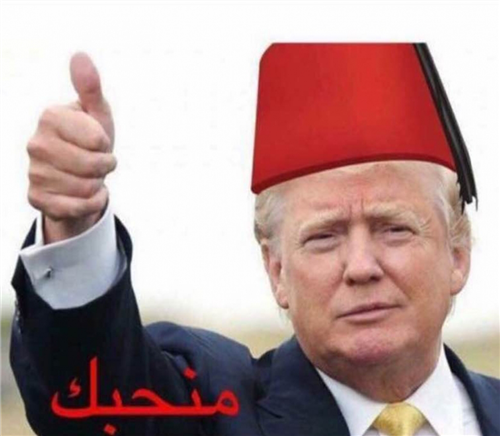Finally, someone is asking about what Iran is doing in Iraq
Khairallah Khairallah/The Arab Weekly/February 13/17
After several years of US blissful ignorance, questions are being raised now about Iran’s role in Iraq.
The new US administration is aware of the dangers posed by Iran’s policies and its expansionist project, which started taking shape in tandem with the US occupation of Iraq in 2003. Former US president Barack Obama literally surrendered to Iran when he announced the withdrawal of US forces from Iraq, with the last ones leaving in December 2011.
For Obama, it sometimes seemed the problems in the Middle East were bundled in Iran’s nuclear file. To him, the Muslim Brotherhood represented the hopes of the new Arab generation from the Atlantic to the Arabian Gulf and the imam in Iran was the idol of every Shia Muslim regardless of race or nationality.
Obama was in denial when it came to Islamist terrorist movements. He refused to admit that they were all birthed by the Muslim Brotherhood ideology. The Brotherhood has never severed its relations with Iran and its satellite Islamist organisations among which is the Islamic Dawa Party, the ruling party in Iraq.
After several years of US blissful ignorance, questions are being raised about Iran’s role in Iraq. How could the result of a costly US war on Iraq be an Iranian victory in Iraq? Starting from this central question, the Trump administration will figure out the appropriate responses.
The first response will be more sanctions against Iran and its satellites. Iran’s movements and actions in the region are going to be closely monitored and analysed, including the attack by Iranian-backed Houthis on a Saudi frigate in Yemeni waters at the end of January.
Obama gave Iran free rein in Iraq, Syria, Lebanon and Yemen but Trump is flashing a red card in Iran’s face. Reacting quickly to Tehran’s ballistic missile test, the Trump administration “officially put Iran on notice”.
During his US Senate confirmation hearing, new US Secretary of Defense James Mattis insisted that the United States must maintain its influence in Iraq even after the liberation of Mosul from the Islamic State and accused Iran of being “the biggest destabilising force in the Middle East”. Mattis knows Iran very well and knows what it has done in Iraq.
Mattis went even further. In a written statement preceding his confirmation hearings, he called on the United States to work on “a long-term strategy that prevents Iran from achieving its objective”, which is dominance of the region.
Top US officials agree that the honeymoon with Iran is over. US national security adviser Michael Flynn, another former general, officially warned Tehran over its latest ballistic missile test, saying it clearly violated UN Security Council Resolution 2231.
While it remains true that it is difficult to predict what US President Donald Trump might do about Iran, at least he seems to have made up his mind with backup from Republican congressional leaders. Trump is moving Iraq back to centre stage. Against Iran, he might continue to play the economic sanctions card. Iran cannot afford to have US and international sanctions inflicted against it again.
Yes, Iran will try to wiggle and manoeuvre its way out by more missile tests and a lot of tough talk but, in the end, it has no choice but to deal with the new American reality.
Iran’s predicament with Washington is very similar to Russia’s but with one major difference. It seems that Russian President Vladimir Putin is ready to make several deals with Trump even though the latter is in no hurry to lift the sanctions against Moscow. In the case of Iran, we cannot say that Trump is a great admirer of Iran nor is he a fan of its leader, Ayatollah Ali Khamenei. The two sides will clash if Iran continues to think that it is accountable to no one.
It looks like it is going to be in Iraq once more where the militias of the Popular Mobilisation Forces stand ready to commit unforgivable crimes against the people of Mosul and that Iran will demonstrate how far it is ready to go to rein in its ambition and expansionist enthusiasm.
**Khairallah Khairallah is a Lebanese writer. The commentary was translated and adapted from the Arabic. It was initially published in middle-east-online.com.























